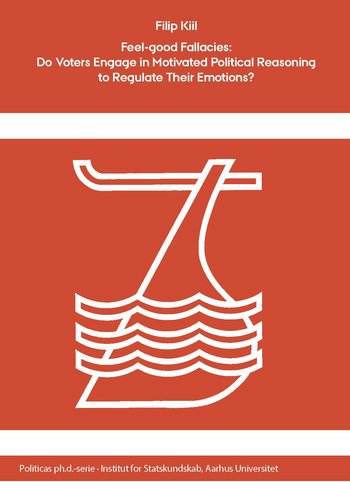Filip Kiil
Feel-good Fallacies: Do Voters Engage in Motivated Political Reasoning to Regulate Their Emotions?

Voters must acquire relevant information about society and politics in order to make competent decisions when choosing political representatives. Unfortunately, it is commonly believed that voters’ information acquisition is fundamentally flawed, fraught with biases that favor information that confirms their preexisting attitudes. This dissertation investigates whether these biases arise from voters attempting to regulate their emotions when engaging with political information, as an influential theory suggests. The dissertation argues that if this “emotion regulation explanation” is true, certain emotion regulation strategies should increase specific instances of motivated political reasoning, while others should reduce them. The empirical analyses draw on six large, original surveys from Denmark and the US, five of which were pre-registered before data collection. Both observational and experimental evidence is used. The results suggest that voters tend to judge the credibility of information that challenges their political attitudes as low and the credibility of information that supports their attitudes as high (prior attitude bias), but there is no convincing evidence that this is caused by efforts to control emotional states. The dissertation does find evidence, however, that attempts to regulate emotions lead voters to avoid information that challenges their political attitudes and seek out information that supports them (selective exposure bias). Overall, the dissertation suggests that different motivated political reasoning biases have different psychological causes, and that one particular bias, disconfirmation bias, is less prevalent and impactful than previously thought.
![]() Ophavsretten tilhører Politica. Materialet må ikke bruges eller distribueres i kommercielt øjemed.
Ophavsretten tilhører Politica. Materialet må ikke bruges eller distribueres i kommercielt øjemed.